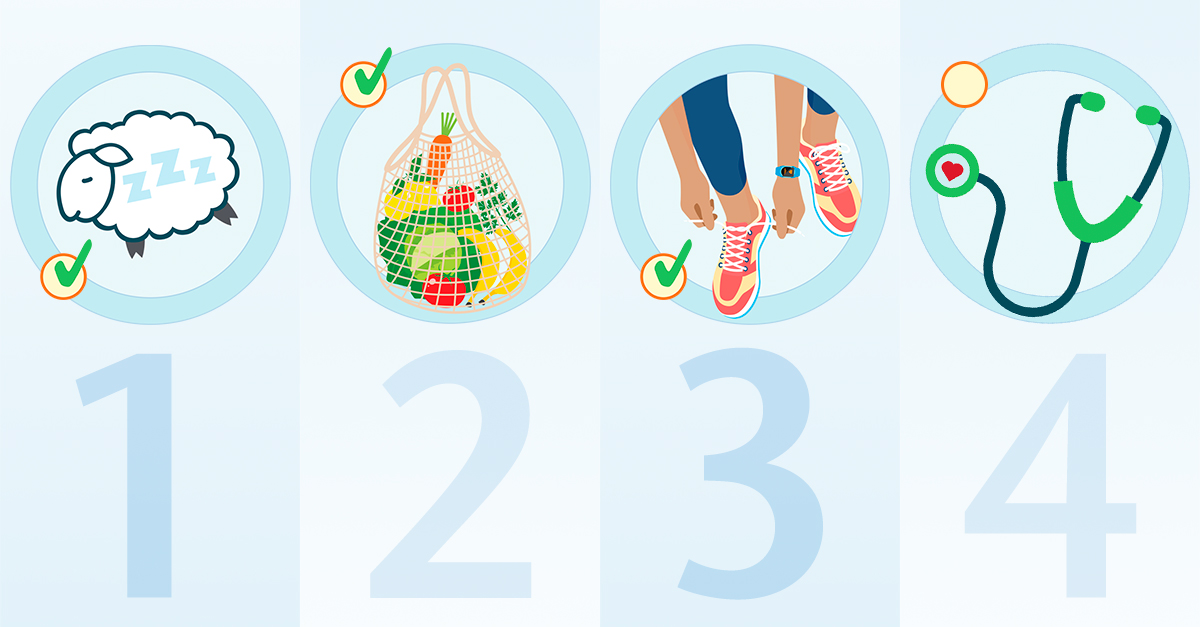
Don't Miss the Last Step to Better Health
We all strive to be healthier, but are you really doing all you can? Maybe you are already eating the right foods, exercising, getting enough sleep, drinking more water... but do you also schedule regular visits with a doctor? You should.
If you want to stay healthy, you need a trusted doctor or a nurse practitioner in your corner. Not just someone who can treat flu symptoms or a sore back — but a trusted primary care provider who knows you, knows what's normal for you and can spot changes in your bloodwork or vitals over time. Someone you feel comfortable talking with about sensitive topics.
Each Step to Good Health is Important
A primary care provider (PCP) is your first point of contact for most medical situations. Whatever's bothering you, from colds to chronic pain, PCPs are trained to treat it. And when needed, they can refer you to a specialist who can help you further explore the cause of your symptoms. Think of a PCP like a medical advocate who helps you navigate what can feel like a healthcare maze at times. Establishing a routine of recommended medical screenings is one of the best paths to optimal health.
Types of Primary Care Providers
If you already have a PCP, make sure you stick to a schedule of regular screenings. If you need a PCP, there are links to providers accepting new patients below. Primary care providers fall into three basic categories, depending on your needs:
The benefits of having a Primary Care Provider
What can a primary care provider do for you? Here are just a few of the many reasons to choose a PCP of your own.
- Preventive care — Your PCP can help make sure you're getting regular checkups, routine screenings and immunizations. They can also help you make lifestyle changes, such as quitting smoking, losing weight or even dealing with mental health concerns.
- Managing chronic diseases — Diabetes, high blood pressure and other chronic diseases can be hard to monitor on your own. But having a PCP can help organize your care and allow you to track how your body is being affected by the disease. Regular visits to your PCP and periodic testing can help make the whole process easier.
- Catching health problems early — Because your PCP performs regular screenings and keeps track of your health history, he or she help to spot changes that may arise over time. Remember, regular screenings are an important tool to catch health care issues in earlier stages, when they may be easier to treat.
- Fewer hospitalizations — Research shows that patients who visit their PCP regularly — and catch potential problems early — have fewer hospitalizations and trips to the ER. Source: National Academies Press
- Lower overall healthcare costs — Preventive care, routine screenings and regular visits to your primary care provider can all add up to lower overall healthcare costs. It pays to have a PCP! Source: National Institutes of Health
Extra Steps to a Healthier Life
Want to incorporate more healthy ideas into your routine? Try these simple steps:
- Drink a glass of water upon waking every day
- Meatless Mondays — go vegetarian one day a week
- Eat a green side salad at least once a day
- Take a walk every night after dinner
- Unplug from technology one hour before bed